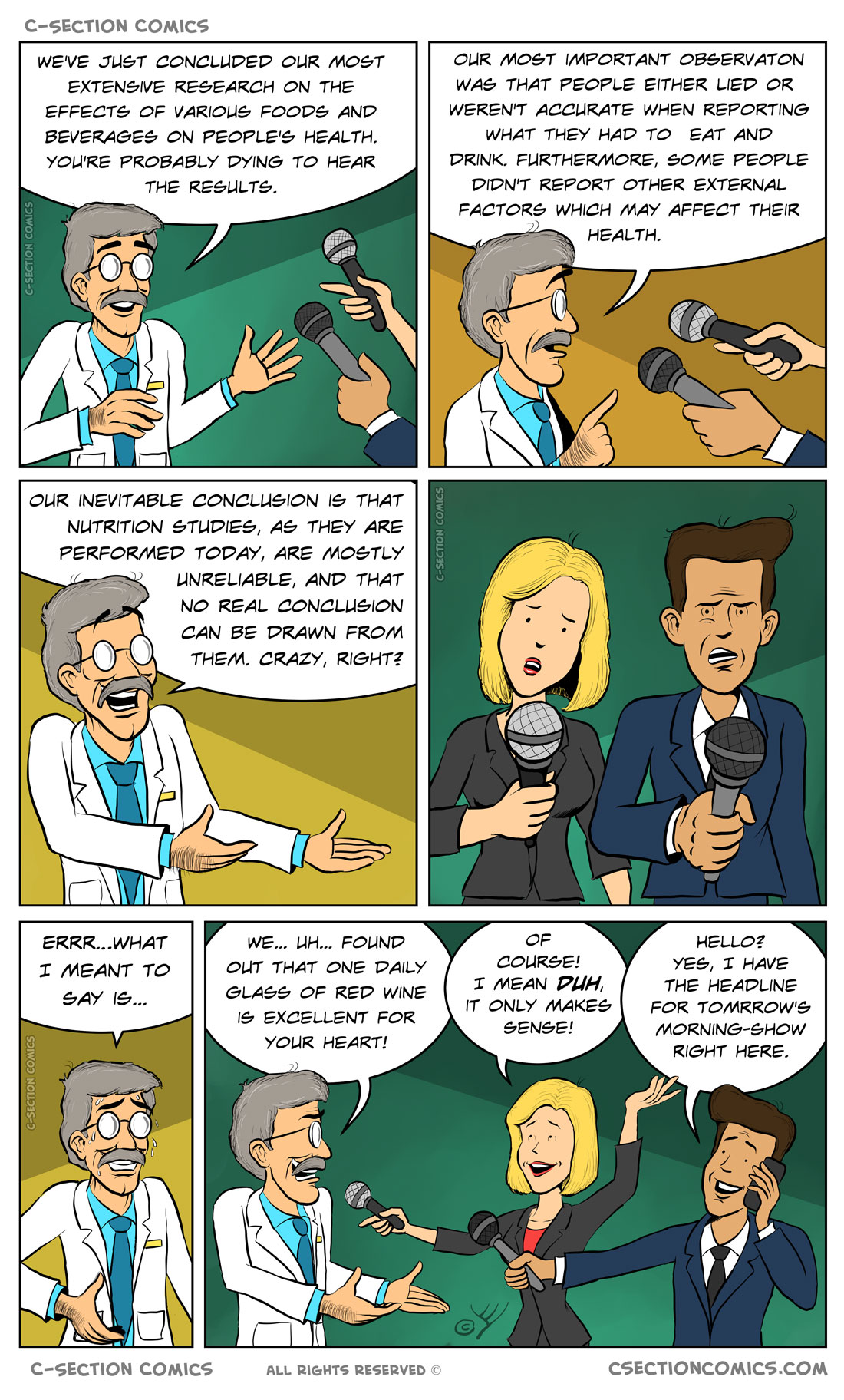talk about nutrition studies.
How come one day they all say
“Red wine’s good for you”, but hey,
next day they’ll say: “Don’t drink, quit,
red wine’s bad!” It’s strange, ain’t it?
It is not intentional,
they’re mostly observational,
which means their truthfulness relies
on people never telling lies.
Subjects fill in some reports
on eating, drinking and all sorts
of things which they are asked about.
This is where I have a doubt:
People often lie (don’t we?)
or report mistakenly
’bout things that they all drank or ate.
Scientist – don’t bite this bait!
Therefore we should all take heed,
be wary of the things we read
in such researches, mainly when
they’re quoted on BuzzFeed. Amen!
————
Here’s some interesting reading on that topic:
From Harvard Medical School’s blog – “Is red wine actually good for your heart”
The French Paradox refers to the notion that drinking wine may explain the relatively low rates of heart disease among the French, despite their fondness for cheese and other rich, fatty foods.
…However, the evidence that drinking red wine in particular (or alcohol in general…) can help you avoid heart disease is pretty weak… All of the research showing that people who drink moderate amounts of alcohol have lower rates of heart disease is observational. Such studies can’t prove cause and effect, only associations.
From VOX.COM – “I asked 8 researchers why the science of nutrition is so messy. Here’s what they said.”
Many observational studies — and other nutritional research — rely on surveys. After all, the scientists can’t hover over every single person and watch what they eat for decades. So they have subjects report on their diets.
This poses an obvious challenge. Do you remember what you ate for lunch yesterday? Did you sprinkle nuts or dressing on your salad? Did you snack afterward? Exactly how many potato chips did you eat?
Chances are you probably can’t answer these questions with any certainty. And yet, a lot of nutrition research today rests on just that kind of information: people’s self-reporting from memory of what they ate.
————
Here’s another comic about flawed methods in some scientific studies.


